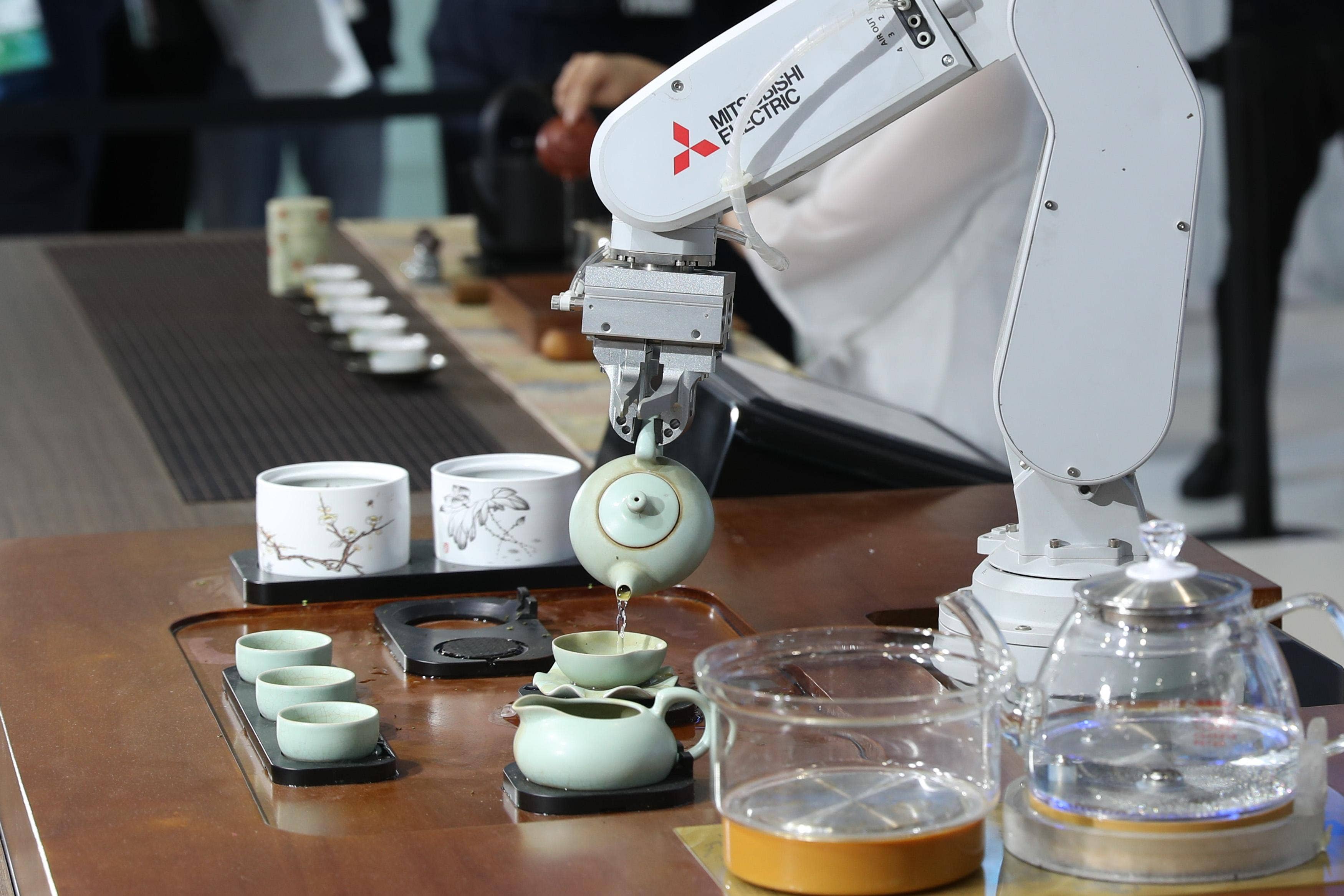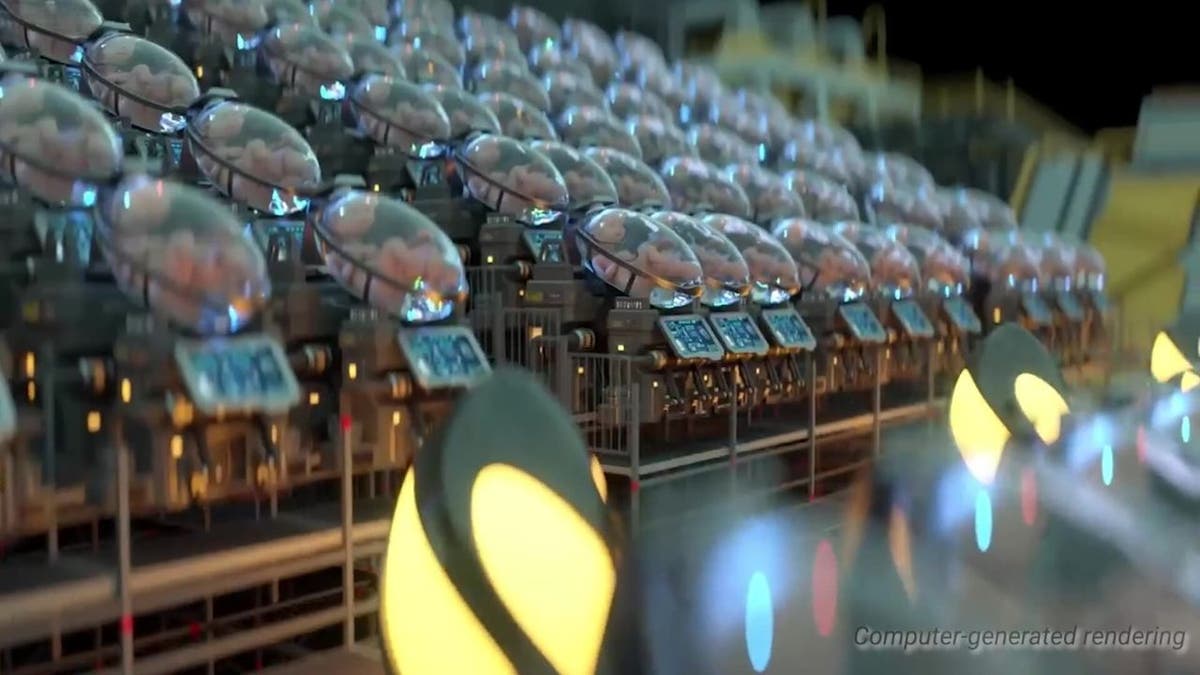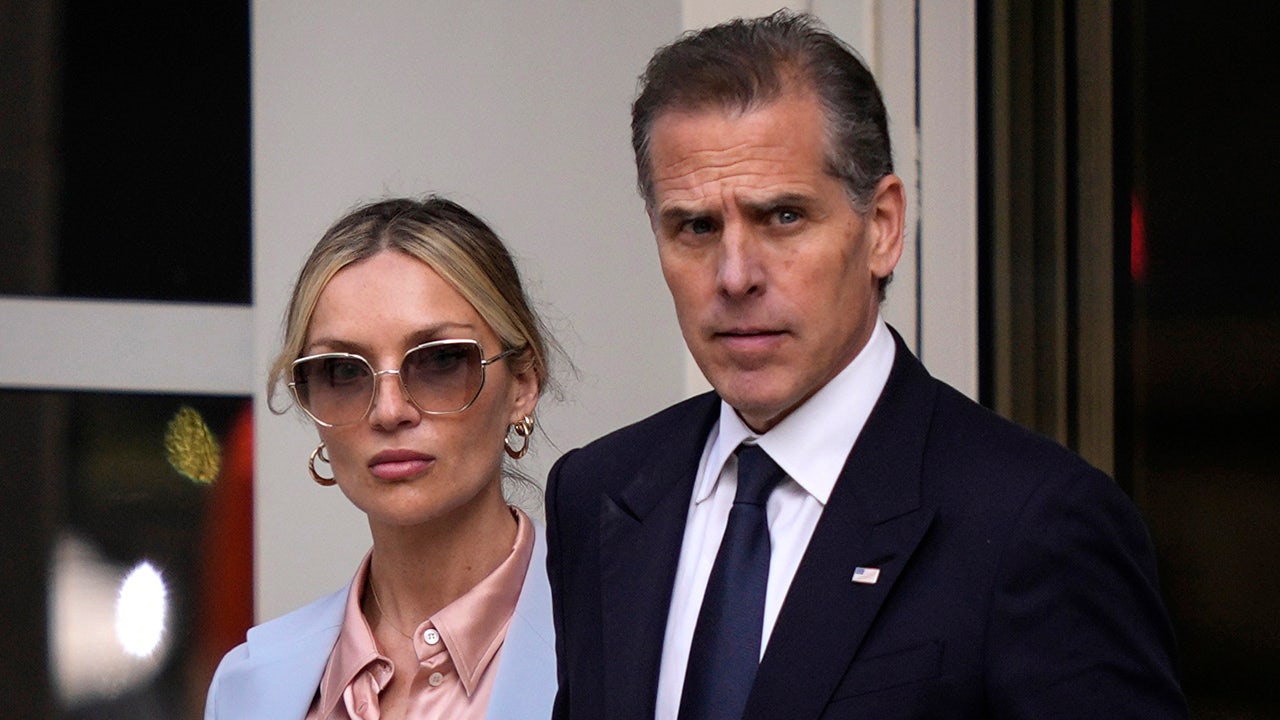Technology
‘Will definitely replace me’: Americans fear artificial intelligence will steal their jobs

AUSTIN, Texas – Americans in the Lone Star State weighed in on job displacement from artificial intelligence, with several telling Fox News they believe their jobs would eventually be replaced.
“A lot of coworkers or people that I know have been laid off at Indeed and things like that because they don’t want to hire real people anymore,” said Gabriel, who works in tech. “They would just rather do AI.”
WATCH: AMERICANS WORRY AI MIGHT TAKE THEIR JOBS
WATCH MORE FOX NEWS DIGITAL ORIGINALS HERE
Advances in AI could cause up to 300 million jobs to be lost or diminished globally, Goldman Sachs predicted in a March 26 report. Artificial intelligence could create “significant disruption” across labor markets worldwide by fully or partially replacing humans in the near future, according to the analysis.
VOICE ACTORS WARN ARTIFICIAL INTELLIGENCE COULD REPLACE THEM, CUT INDUSTRY JOBS AND PAY
A Mitsubishi Electric mechanic arm mimics the actions of a tea server. (Zhang Hengwei/China News Service via Getty Images)
Cristine, a wound nurse, said she believed some medical professions wouldn’t be affected.
“For fast foods or … customer service, I believe they’re gonna do AI in the future for that,” she told Fox News. “But as nurses, as doctors, as any medical provider, there’s no way they can replace an AI with the medical profession.”
Yet ChatGPT may provide better medical advice than humans in some instances, according to a recent University of California San Diego study.
EVERYTHING YOU NEED TO KNOW ABOUT ARTIFICIAL INTELLIGENCE: WHAT IS IT USED FOR?
Researchers asked a group of doctors and ChatGPT to answer the same random sample of roughly 200 medical questions posted on Reddit. A separate panel of health care professionals evaluated the answers for “quality and empathy” and preferred ChatGPT’s answers for nearly 80% of the responses.

A robot waiter serves a woman at Kura Revolving Sushi Bar on Sept. 14, 2022, in Orlando, Florida. (Paul Hennessy/Anadolu Agency via Getty Images)
Dewey said he believed software engineering’s “higher abstraction” roles might stave off AI displacement, at least for the next few decades.
“As far as writing code, AI will definitely replace me,” Dewey, himself a software engineer, said. “In terms of being strategic about what code to write and how to organize the code, AI’s still 30 years away from doing that, is my guess.”
To hear the full interviews, click here.

Technology
Former head of NSA joins OpenAI board
/cdn.vox-cdn.com/uploads/chorus_asset/file/25490736/240129_D_IM742_1116.JPG)
OpenAI has appointed Paul M. Nakasone, a retired general of the US Army and a former head of the National Security Agency (NSA), to its board of directors, the company announced on Thursday.
Nakasone, who was nominated to lead the NSA by former President Donald Trump, directed the agency from 2018 until February of this year. Before Nakasone left the NSA, he wrote an op-ed supporting the renewal of Section 702 of the Foreign Intelligence Surveillance Act, the surveillance program that was ultimately reauthorized by Congress in April.
OpenAI says Nakasone will join its Safety and Security Committee, which was announced in May and is led by CEO Sam Altman, “as a first priority.” Nakasone will “also contribute to OpenAI’s efforts to better understand how AI can be used to strengthen cybersecurity by quickly detecting and responding to cybersecurity threats.”
Recent departures tied to safety at OpenAI include co-founder and chief scientist Ilya Sutskever, who played a key role in Sam Altman’s November firing and eventual un-firing, and Jan Leike, who said on X that “safety culture and processes have taken a backseat to shiny products.”
“Artificial intelligence has the potential to have huge positive impacts on people’s lives, but it can only meet this potential if these innovations are securely built and deployed,“ board chair Bret Taylor said in a statement. “General Nakasone’s unparalleled experience in areas like cybersecurity will help guide OpenAI in achieving its mission of ensuring artificial general intelligence benefits all of humanity.”
Technology
Chilling fake of birthing 30,000 babies in eerie artificial wombs

The intriguing yet fictional video, “EctoLife: The World’s First Artificial Womb Facility,” has recently regained traction on social media, likely due to creator Hashem Al-Ghaili releasing another fake video – on head transplants called “BrainBridge” – sparking discussions and raising questions about the EctoLife video’s authenticity.
However, both videos are conceptual presentations and do not depict an existing facility or technology.
An image from the controversial concept video (EctoLife)
A thought-provoking concept, not a reality
The EctoLife video, created by Hashem Al-Ghaili, a science communicator and filmmaker, presents a futuristic concept of an artificial womb facility that claims to offer a safe and pain-free alternative to natural pregnancy and childbirth.
GET SECURITY ALERTS, EXPERT TIPS – SIGN UP FOR KURT’S NEWSLETTER – THE CYBERGUY REPORT HERE
The video showcases rows of fetuses in clear, football-shaped pods inside a high-tech building, accompanied by a narrator describing the facility’s capabilities.
However, it’s crucial to understand that the EctoLife video is a concept video and not a representation of an existing reality. Al-Ghaili himself has clarified that the technology depicted in the video does not yet exist, and the video is marked as a “concept” near its end.

Controversial concept video (EctoLife)
KURT’S BEST FATHER’S DAY GIFT GUIDE 2024
Partial ectogenesis: A more realistic approach
While the concept of complete ectogenesis (gestating a fetus entirely outside the womb) remains a distant possibility, researchers are making progress in the field of partial ectogenesis. In 2017, researchers at Children’s Hospital of Philadelphia successfully gestated premature lambs in artificial womb-like “biobags” for several weeks. However, experts emphasize that these efforts are focused on potential life support options for premature human babies, not an alternative to full gestation.
WHAT IS ARTIFICIAL INTELLIGENCE (AI)?

Controversial concept video (EctoLife)
Sparking discussions and ethical considerations
While the EctoLife video may not depict a current reality, it has succeeded in igniting discussions about the potential implications and ethical considerations surrounding artificial womb technology. As scientific advancements continue, it is crucial to engage in thoughtful dialogue and address the complex ethical, legal, and social issues that may arise.
As Hashem Al-Ghaili stated, the main goal of creating the video was “to ignite the discussion about an emerging technology and to highlight scientific progress in the field of ectogenesis.” By presenting a thought-provoking concept, the video has sparked conversations that could shape the future development and regulation of artificial womb technology.

Controversial concept video (EctoLife)
BOSTON DYNAMICS’ CREEPY ROBOTIC CANINE DANCES IN SPARKLY BLUE COSTUME
Kurt’s key takeaways
While the resurfacing of the EctoLife video has reignited discussions and raised eyebrows, it’s important to separate fact from fiction. The video, though intriguing, is a conceptual presentation and not a depiction of an existing reality. However, its creator, Hashem Al-Ghaili, seems to have a knack for sparking conversations with his thought-provoking, albeit fictional, videos.
The recent release of Al-Ghaili’s “BrainBridge” video on head transplants has likely contributed to the renewed interest in the EctoLife concept. While these videos may not represent current scientific capabilities, they serve as a reminder of the rapid pace of technological advancements and the ethical considerations that must accompany them.
As we continue to push the boundaries of what’s possible, it’s crucial to engage in thoughtful dialogue and address the complex ethical, legal, and social issues that may arise. The EctoLife video, though fictional, has succeeded in igniting discussions about the potential implications of artificial womb technology, and these conversations could shape the future development and regulation of such technologies.
Ultimately, while we may not have artificial womb facilities like EctoLife just yet, the video serves as a thought-provoking glimpse into what the future might hold and a reminder to approach such advancements with careful consideration and ethical responsibility.
What are your thoughts on the implications of artificial womb technology? If a facility like the conceptual “EctoLife” were to become a reality in the future, what potential concerns would you have? Let us know by writing us at Cyberguy.com/Contact.
For more of my tech tips and security alerts, subscribe to my free CyberGuy Report Newsletter by heading to Cyberguy.com/Newsletter.
Ask Kurt a question or let us know what stories you’d like us to cover.
Follow Kurt on his social channels
Answers to the most asked CyberGuy questions:
Copyright 2024 CyberGuy.com. All rights reserved.
Technology
The Beats Studio Pro are down to $180, nearly matching their all-time low
/cdn.vox-cdn.com/uploads/chorus_asset/file/24796017/DSCF2608_Enhanced_NR.jpg)
If you’re not an audiophile and can’t otherwise afford to splurge on a substantial pair of headphones like the AirPods Max or the new Sonos Ace headphones, a pair of Beats can do the job just fine. The brand’s headphones consistently sound pretty good and have kept up well with the times under Apple’s stewardship. You can consider the Beats Studio Pro the pinnacle of the line right now, and the flagship over-ear pair are nearly matching their all-time low price at around $179.95 ($170 off) at Amazon and Best Buy. That’s only $10 more than the all-time low price we saw during Black Friday.
For example, these headphones are more adaptable than most across the mobile ecosystem duopoly currently ruled by iOS and Android. On iOS, they support key features like one-touch pairing, Siri, spatial audio with dynamic head tracking, Find My, and iCloud sync. On Android, you also get Fast Pair, Find My Device support, and automatic pairing and seamless audio switching between Android devices and Chromebooks. Plus, you get better active noise cancellation and transparency mode compared to the Beats Studio 3 they replaced, not to mention lossless USB-C audio (although you give up the aforementioned audio features when using it).
-

 Politics1 week ago
Politics1 week ago5 things to know about Hunter Biden trial
-

 Movie Reviews1 week ago
Movie Reviews1 week agoFilm Review: I Used To Be Funny offsets its humorously-adjacent title with a dark, heartbreaking temperament. – The AU Review
-

 World1 week ago
World1 week agoChina denies fuelling Russia-Ukraine war tensions, says it supports peace
-

 World1 week ago
World1 week agoEconomy, migration: Voters' main concerns ahead of elections
-

 News1 week ago
News1 week agoWhat is D-Day? How the Normandy landings led to Germany’s defeat in World War II | CNN
-

 Politics1 week ago
Politics1 week agoTrump campaign accelerates vetting of potential running mates
-

 Politics1 week ago
Politics1 week agoHunter Biden trial enters 3rd day with cross-examination of FBI agent
-

 Politics1 week ago
Politics1 week ago'It's absurd': Congress takes bipartisan action after Cuban officials' tour secure parts of major airport



















